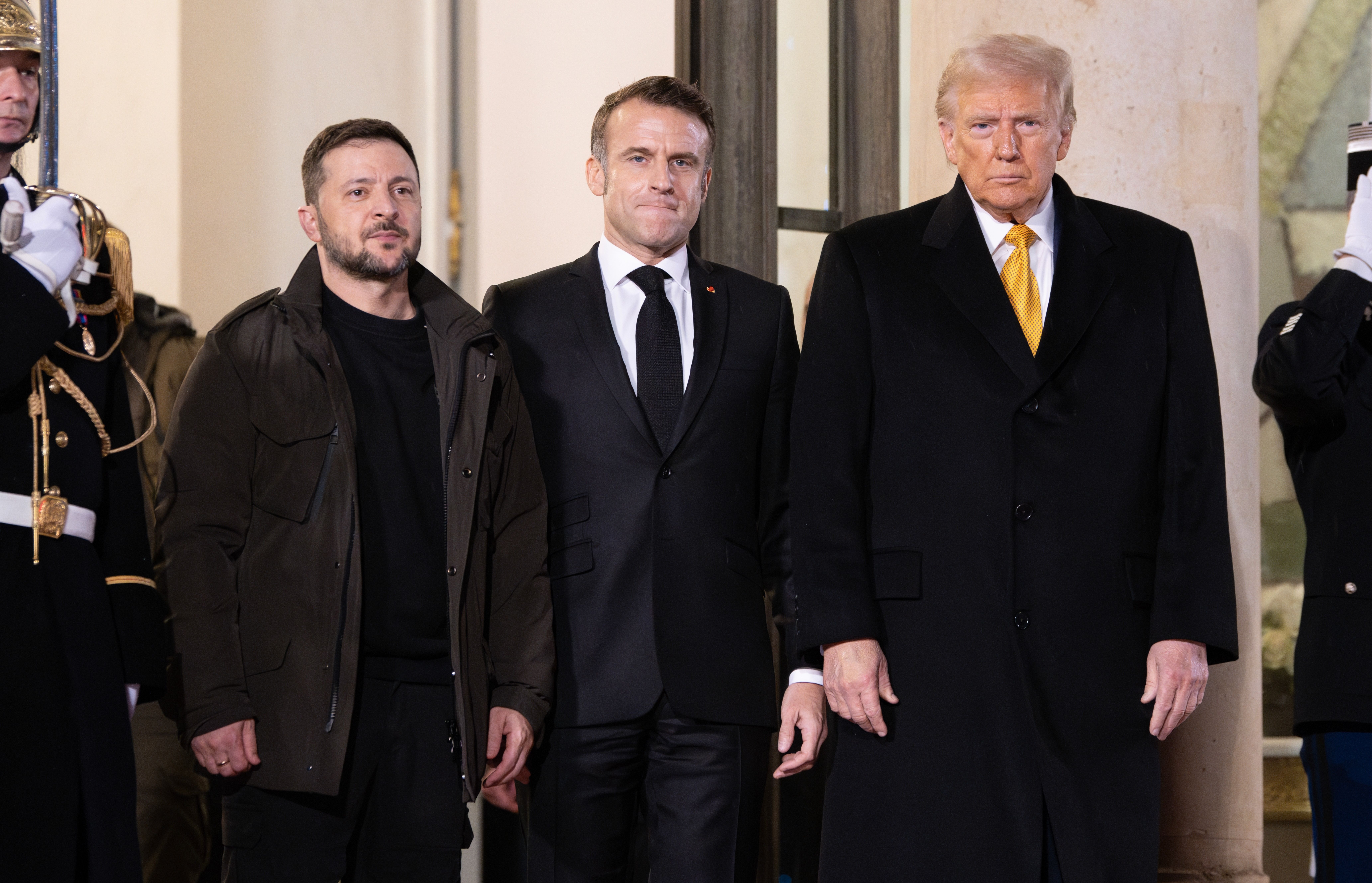As the incoming Trump administration prepares to launch negotiations aimed at ending the current phase of hostilities between Russia and Ukraine, the question of security guarantees is certain to feature prominently in talks.
Talk of security guarantees is nothing new — indeed, it has underscored much of the drama that has unfolded since Russia’s initial military buildup in 2021. Moscow insisted that the United States and NATO undertake legally binding obligations in its two “draft treaties,” published on the eve of its full-scale invasion of Ukraine, aimed at guaranteeing Ukraine’s neutrality and rolling back NATO forces in Central and Eastern Europe to where they were prior to the 1997 NATO-Russia Founding Act. Kyiv, for its part, naturally wants ironclad measures that can ensure it will not fall victim to another war of aggression in the years ahead.
To some extent, however, this is all déjà vu. Thirty years ago last month, the Budapest Memorandum was signed.
Aimed at providing security assurances to Ukraine, Belarus and Kazakhstan in exchange for their entry into the Nuclear Non-Proliferation Treaty, the Budapest Memorandum committed Russia, the United States and the United Kingdom to abstain from military and economic coercion against these three newly independent post-Soviet states. Its lessons offer important clues for how to bring peace to what has tragically become a war-torn region.
The memorandum has become the source of considerable mythmaking following Russia’s brazen violation of Ukrainian sovereignty on February 24, 2022 (though some have asserted that the United States was the first to violate the memorandum with its sanctions against Belarus). Most notably, Atlanticists and pro-Ukrainian advocates often insist that Kyiv gave up its nuclear weapons — the ultimate deterrent and guarantee of one’s own security — in exchange for promises that its borders would be respected.
Of course, these missiles were Soviet — they were never functionally Ukrainian and were beyond Kyiv’s ability to maintain. Lost even more often in this discussion is the fact that the newly minted Ukrainian state prohibited itself from accepting, producing or acquiring nuclear weapons in its 1990 Declaration of State Sovereignty, the same declaration in which Kyiv announced its “intention of becoming a permanently neutral state.”
Famously, the memorandum offered Ukraine security assurances rather than legally binding security guarantees, a distinction explicitly stressed by American diplomats during the talks. Indeed, the memorandum was never approved by the U.S. Senate, as treaties must be, because it did not proffer any security guarantees to Ukraine. Nor did it commit the U.S. — or any other signatory — to any specific punitive action in the event of aggression against Ukraine, affirming instead a “commitment to seek immediate United Nations Security Council action to provide assistance” to Kyiv in case of an armed attack.
Given the history of the drafting process, Washington cannot be accused of pulling a fast one on Ukraine with ambiguous language or by using terms that may have been lost in translation. Simply put, the United States has never promised to fight for Ukraine — a position held in 1994 and reaffirmed by the Biden administration since Russia’s full-scale invasion. Any security guarantees offered to Ukraine aimed at bringing current hostilities to a close will be novel ones, not compensation for the West having supposedly failed to uphold its existing obligations.
In this context, Western states will need to weigh carefully just how far they are prepared to go, since Russia has demonstrated its willingness to fight for Ukraine while the West — initial suggestions of European peacekeepers aside — has not. French President Emmanuel Macron’s discussion earlier this year of sending European troops to Ukraine to prevent a Russian victory was promptly shut down by Western allies. One could argue that Ukraine’s status as a security “gray area” is what prompted Russia’s invasion, but permanent neutrality is just as plausible a resolution to this dilemma as NATO membership.
But perhaps the greatest lesson to derive from the history of the Budapest Memorandum is that context matters. The memorandum was agreed at a time when relations between Russia and the West were much more favorable (although by the end of 1994, Boris Yeltsin was already warning of the risk of a “cold peace”). The conclusion is that diplomacy — an evolving mixture of deterrence and reassurance — is consistently needed to tend to international relationships to ensure that agreements are upheld. The same will be true when it comes to “guaranteeing” that Russia will never invade Ukraine again.
By contrast, the Western approach to relations with Russia in the post-Cold War era has often been more legalistic than diplomatic — “throwing the book” at Moscow by pointing out the alleged ways in which it has failed to live up to its international commitments. Yet Kyiv was all too happy not to implement the Minsk agreements, which brought the initial rounds of fighting in the Donbas conflict to a halt, using the intervening years between 2015 and 2022 to strengthen its hand. Similarly, Moscow believed that the post-Cold War status quo was imposed upon it at a time of national weakness — something it sought to rectify by way of its “draft treaties.”
It is easy to say pacta sunt servanda, that agreements must be kept. But this requires building and maintaining trust. Doing so will require all sides to stop airing their tired narratives in public — such as when Moscow dismisses the perspectives of Central and Eastern European states as Russophobic or when Western countries pointlessly insist that NATO expansion is directed against no one — and recognize one another’s security concerns as legitimate.
- The trouble with telling history as it happens ›
- Did the US really take Russia’s NATO concerns 'very seriously'? ›
- Diplomacy Watch: Did Boris Johnson help stop a peace deal in Ukraine? ›
- Is the Ukraine war exposing an opportunity for nuclear arms control? ›
- Breaking the cycle of angst over Lukashenko's endless grip on power | Responsible Statecraft ›
















